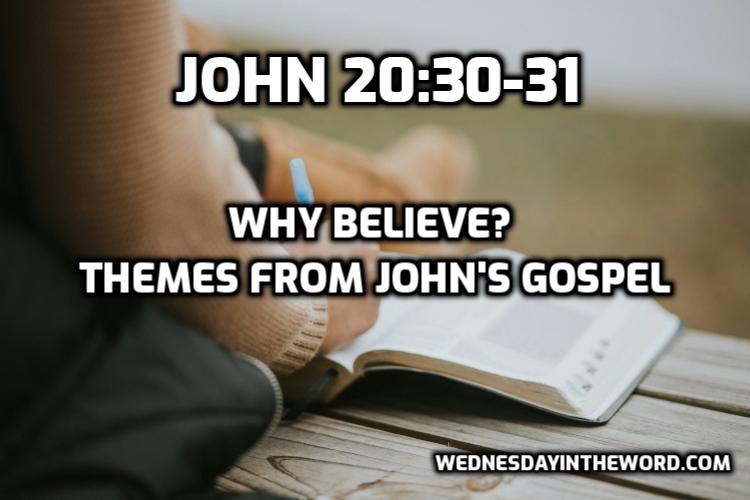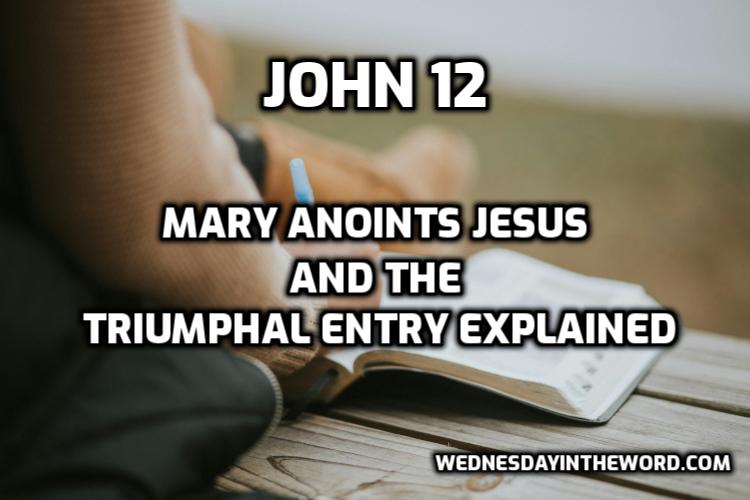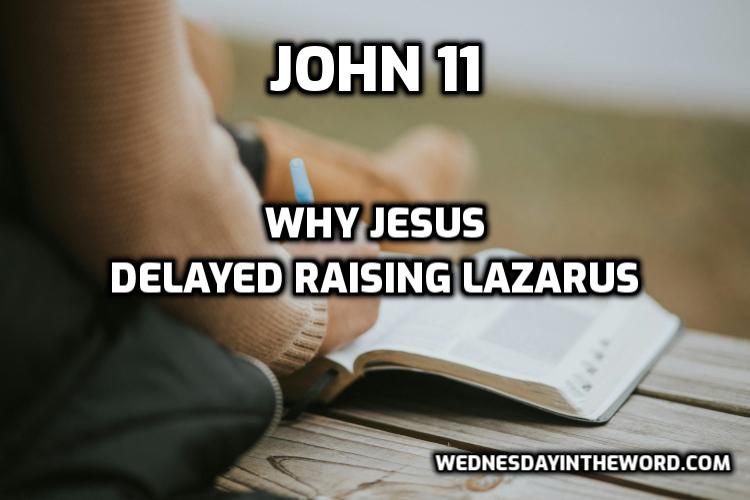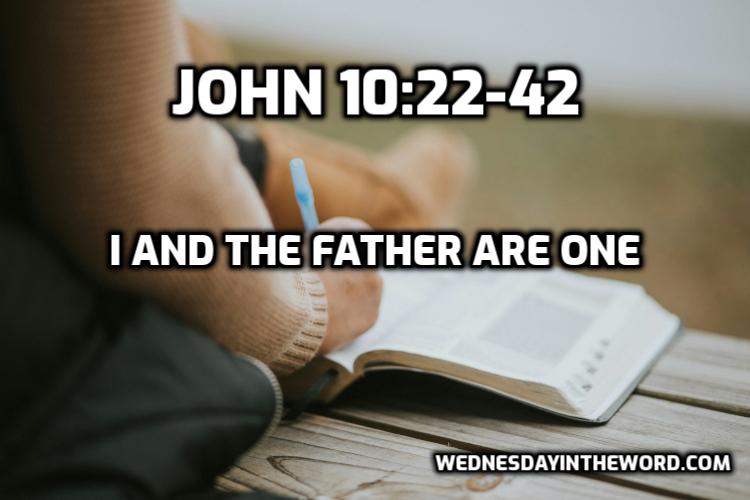
Apr 9, 2025 | 01 Podcasts, John
n this episode of the Wednesday in the Word, we summarize the themes of the Gospel of John as we learned in this series. We focus on John 20:30-31 as a lens to understand John’s purpose and the transformative power of belief.
In this week’s episode, we explore:
The significance of Jesus’ miraculous signs and their role in proving his identity as the Messiah.
The critical role of the apostles as eyewitnesses who pass down Jesus’ teachings through written testimony.
The theme of belief versus unbelief and why it’s central to John’s message.
Jesus as the Christ—prophet, priest, and king—and what that means for salvation.
The promise of eternal life and how faith in Jesus offers forgiveness, freedom from sin, and victory over death.
By listening, you’ll gain a clearer understanding of John’s purpose in writing his Gospel and how its themes of signs, testimony, and belief apply to your life today. Krisan Marotta breaks down complex ideas into an accessible overview, showing you how to connect the dots between Jesus’ actions and the hope of salvation. Whether you’re new to the Bible or a seasoned reader, this episode offers practical insights into why faith matters and how John’s words continue to resonate 2,000 years later.

Apr 8, 2025 | Best of WitW
After Jesus was captured in the Garden of Gethsemane, the soldiers led him to the high priest. Mark is very careful to point out that these two situations — the trial before the Sanhedrin and the denial of Peter — occur side by side. The contrast between these two situations gives us an illustration which is the answer to the question Jesus asks on the cross.

Apr 2, 2025 | 01 Podcasts, John
In this episode of the Wednesday in the Word podcast, we tackle the Upper Room Discourse (John 13-17) where Jesus prepares his disciples for his departure. Jesus addresses both the unique role of his apostles and the universal call for all his followers to live faithfully in his absence.
In this week’s episode, we explore:
Jesus’ Departure and Return: Jesus announces his leaving but reassures his disciples of his eventual return, offering hope through the promise of his second coming.
Commissioning of the Apostles: Jesus explains to his apostles their mission and the challenges they will face.
The Role of the Holy Spirit: Jesus promises he will not leave them alone. He will send the “Spirit of Truth” to eguip and guide them in their ministry.
Ethical Teachings for Believers: Jesus gives a new commandment to love one another, modeled after his own sacrificial love and service.
Perseverance in Faith: Jesus explains the importance of persevering in faith while he’s gone.
Assurance of God’s Protection: Jesus’ prays for his disciples and all future believers, promising that they will be preserved and protected by God.
By listening, you’ll gain a deeper understanding of the Upper Room Discourse’s historical context and its profound implications for Christian life today. You’ll understand what applies uniquely to the apostles and what extends to all followers of Jesus. You’ll also discover practical insights into living out Jesus’ teachings on love, perseverance, and faith in a world where he is no longer physically present. This episode not only enriches your knowledge of the Gospel of John but also offers encouragement through the assurance that, though Jesus has left, his Spirit remains with us, and he will one day return.

Apr 1, 2025 | Best of WitW
I’m a new believer. Where do I start? Here’s one suggested path to start learning from Wednesday in the Word.

Mar 27, 2025 | News, Reflections
Thank you for casting your votes to decide our next study topic! The results are in: Ephesians emerged as the clear favorite with 48% of the vote.

Mar 26, 2025 | 01 Podcasts, John
In this episode of the Wednesday in the Word podcast, we study the narratives of Mary anointing Jesus and his triumphal entry into Jerusalem. These events underscore Jesus’ identity and mission while contrasting the responses of belief and unbelief, culminating in his voluntary path to the cross.
In this week’s episode, we explore:
Mary’s anointing of Jesus: Her act of devotion with costly perfume signifies loyalty and foreshadows Jesus’ burial.
Judas’ contrasting reactionl: His objection to Mary’s act reveals his self-interest and sets the stage for his treachery.
The triumphal entry: Jesus enters Jerusalem as a peaceful king on a donkey, fulfilling prophecy and accepting the crowd’s acclaim.
The dynamics of belief and unbelief: Mary’s faith starkly contrasts with Judas and the Pharisees’ rejection, highlighting the complexity of genuine faith.
Jesus’ acceptance of his destiny: He acknowledges his imminent death as necessary for salvation, affirmed by a voice from heaven.
The end of public ministry: Jesus summarizes his mission as bringing light and eternal life, urging belief before his withdrawal from public view.
Listening to this episode offers a compelling look at how John chapter 12 weaves together key themes of faith, sacrifice, and divine purpose. You’ll gain insight into the significance of Jesus’ action

Mar 25, 2025 | Best of WitW
Yes, Jesus is coming back! Yes, he warned his disciples his return would not be soon. All the New Testament writes claim the return of Christ is integral to our Christian hope. Here are some passages to study

Mar 19, 2025 | 01 Podcasts, John
In this episode of the Wednesday in the Word podcast, we explore the story of Lazarus in John 11. This event serves as a pivotal moment where the major themes of John’s Gospel converge, illuminating Jesus’ identity, mission, and the responses he elicits from those around him.
In this week’s episode, we explore:
The miracle of Lazarus’ resurrection: Jesus demonstrates his authority over death, performing a sign that testifies to his divine power.
Jesus’ path to the cross: This event triggers the sequence leading to his crucifixion, showcasing his obedience to God’s will.
The spectrum of belief and unbelief: From Martha’s faith to the Jewish leaders’ rejection, the story examines how people respond to Jesus’ signs.
Jesus as the resurrection and the life: The miracle reinforces his messianic claim to grant eternal life to believers.
God’s sovereignty amid opposition: Even the hostility of the Jewish leaders is woven into God’s redemptive plan.
Jesus’ empathy and humanity: His tears reveal his deep compassion for human suffering, even as he fulfills a divine purpose.
By listening to this episode, you’ll gain a richer understanding of how the raising of Lazarus ties together the central themes of John’s Gospel. Krisan Marotta’s thoughtful exploration offers fresh insights into Jesus’ mission, his power over death, and the hope he extends to believers, encouraging a deeper appreciation of the text and its relevance to faith today.

Mar 18, 2025 | Best of WitW
Why is life so hard? The Bible has a lot to say about suffering and trials and the problem of evil. Here are a few places to start exploring answers from Scripture.

Mar 17, 2025 | 04 Bible Study 101, Bible Study Theory
Start your Bible study journey with these must-read books. Build confidence, gain insight, and grow in your understanding of Scripture.

Mar 12, 2025 | 01 Podcasts, John
This episode of the Wednesday in the Word podcast examines John 10:22-42. We explore how Jesus confronts the Jewish leaders’ skepticism about his identity, using his works and words to affirm his role as the Messiah while foreshadowing the ultimate sacrifice that will secure eternal life for his followers.
In this week’s episode, we explore:
The historical backdrop of the Feast of Dedication (Hanukkah): Learn the significance of this setting and how it frames Jesus’ confrontation with the Jewish leaders questioning his messianic identity.
Jesus’ relationship with his “sheep”: Discover how Jesus describes his followers as those who hear his voice, follow him, and receive the promise of eternal life.
The meaning of “I and the Father are one”: Explore the interpretation of this statement, its implications for Jesus’ identity as the Messiah, and the debate over its hints at divinity.
The escalating tension with the Jewish leaders: Understand how Jesus defends his divine mission with Scripture and miracles, intensifying the conflict that leads toward his crucifixion.
Listen to this episode to gain insights into the theological themes of belief and testimony in John’s Gospel, as well as the historical context of Jesus’ teachings during the Feast of Dedication. The episode also offers a thoughtful analysis of Jesus’ claim to oneness with the Father, helping you appreciate the depth of his identity and mission as the Christ.

Mar 11, 2025 | Best of WitW
If you have an interest in learning more about who Jesus was, why he came or what he taught, here are some places to start.












 Krisan Marotta is a Bible teacher and host of Wednesday in the Word, the podcast about what the Bible means and how we know.
Krisan Marotta is a Bible teacher and host of Wednesday in the Word, the podcast about what the Bible means and how we know.